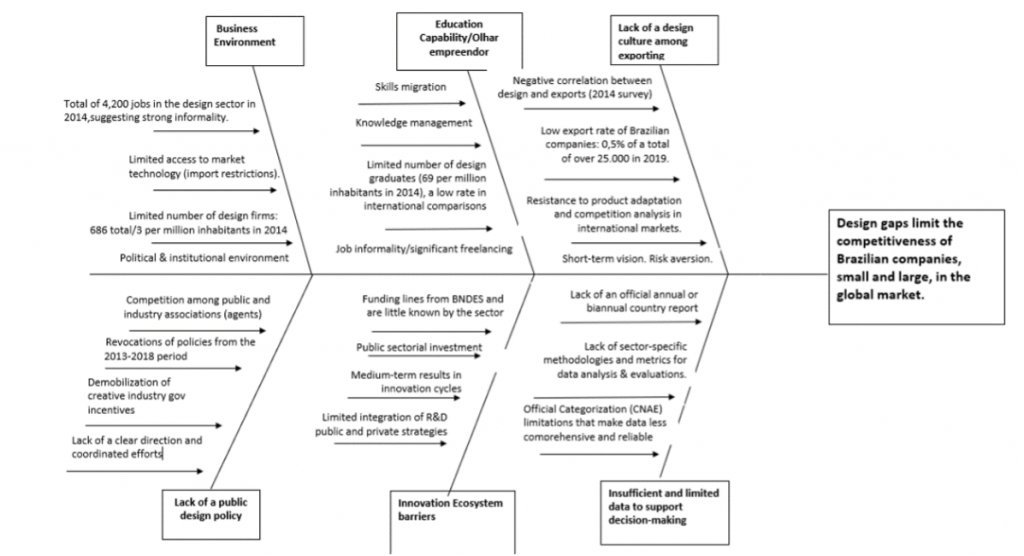Guest blog by Isabel Tarrisse da Fontoura
“The flow of life envelopes everything. That’s life: it heats up and cools down, it tightens and then loosens up, it becomes calm and then unrests. What it wants from us is courage”.
João Guimaraes Rosa
1. An act of courage
The Harvard Kennedy School (HKS) program Implementing Public Policy (IPP) is an act of courage. It is so from the day you decide to commit to six months of action learning in the middle of a global pandemic to, today, as we end this journey with 142 peers from 47 countries and the HKS team, and we’re moving ahead working on pressing challenges we care too much about to let go.
The good part is that every ending is a new beginning.
The person that joined the first class of the IPP program, in June 2020, is not the same one writing these words this December. I feel stronger as a Latin American female leader, more confident and curious in my public policy practice and convinced that development is the result of tiny extraordinary achievements accomplished with others.
I first became interested in the IPP program because I felt stuck in standard ways of thinking after ten years in the Brazilian public sector working in the fields of communication, social policy, trade, and investment. Being entrepreneurial and creative by nature, I felt uneasy noticing these elements slip away in my daily work.
Although the timing in 2020 was challenging, once I went through the IPP curriculum and testimonials, I knew it was a great fit for my academic, professional and personal goals, and I enrolled with the commitment to give it my best.
2. The problem
My organization, the Brazilian Trade and Investment Promotion Agency (Apex-Brasil), was created in 2000 with the mission to make Brazil’s companies more global, especially small and medium enterprises (SMEs). Apex-Brasil is also committed to boosting the country´s competitiveness by attracting Foreign Direct Investment (FDI). We support over 14,200 companies and 180 investors every year.
Being a strong believer in the need to strengthen the consistency and continuity of public policies beyond governmental mandates, I wanted to dedicate my IPP project to a topic Apex-Brasil has worked on previously, but with room for significant improvement, so we could reflect on lessons and achievements of the past to build the future we wanted.
Serving as Chief of Staff of the Business Office in 2020 gave me a distinct perspective of the organizations’ operation, resources and potential. Reflecting on our work, I realized there was a key topic of public policy for international trade that needed both urgent attention and better understanding: design. For the IPP project, the definition of design I considered was “design as the element that gives meaning to processes, products and services based on consumer needs, becoming a comparative advantage for global business and development”.
Apex-Brasil’s Design Export program had historically been operated by our team since 2013, aimed at supporting design projects through individual consultancies with external firms. Now, I had the opportunity to lead the program’s restructure, crafting its policy design through a Problem Driven Iterative Approach (PDIA) lens with the goal to maximize long-term impact.
As the first step of the PDIA process, I conducted brainstorm sessions with a team of three employees at Apex-Brasil to design our draft problem statement and the series of problem subcauses using the Ishikawa Diagram and “5 Why” technique:

A central element to this process was conducting interviews with experts, private sector entities, colleagues at Apex-Brasil and companies to test some of the assumptions and ideas presented in the first version of our Ishikawa Diagram. We also collected know-how and lessons-learned from previous editions of the Design Export program to relaunch the public policy with a fresh, innovative lens. To do so, we crafted the following problem statement:
Lack of an entrepreneurial vision of design as competitive advantage for global business in Brazil
Every week, we revised and refined elements of our Ishikawa Diagram, the problem statement and reflected on our change space analysis, addressing the level of Authority, Ability and Acceptance we had in each subcause identified, including lack of credible data and information in the field of design and limited financing mechanisms. After four rounds of revisions, by September 2020, we had crafted the updated version of our Ishikawa Diagram that I share below:

3. Ideas for action
Based on studies, discussions, Ishikawa Diagram and Change Space analysis and learning iterations, we understood that success will only come by building, first and foremost, a common purpose for design within Brazil’s international trade ecosystem. Putting it simply, this meant making sure others care as much as we do about the potential of design to empower companies in global business and advancing economic development.
Our seven iteration cycles focused on conducting interviews with internal and external stakeholders looking to build ability and acceptance for the design and implementation of an improved Design Export program. This led to designing networks of collaboration for Apex-Brasil from within the organization and among governmental partners and academia.
A major achievement of our action learning process was obtaining authorization to conduct, for the first time in history, a unique methodology for public policies focused on design registered by Apex-Brasil, after years of working with consultants that retained strategy and know-how.
Additionally, we built an innovative policy design to foster multiple partnerships with design centers, from the Amazon region to the deep south, democratizing the program and mobilizing regional talent. The work, starting in 2021, will involve export and design training projects and business promotion initiatives. Our challenge at Apex-Brasil will be to bring elements of PDIA to Plan and Control structures, allowing iteration and innovation in the way we design and implement public policy focused on design.
4. A learning journey
The HKS Implementing Public Policy program was a corridor of self-discovery and weekly “Aha!” moments not only in the context of action learning, but beyond. Here are my top four lessons from the IPP 2020 journey:
- Problem Driven Iterative Approach (PDIA): You learn a method by practicing it more than by reading how it works. In this context, 25 weeks of dedication were demanding but worth it. With this longer-term experience, I learned not only technical dimensions of PDIA, but how to better understand my feelings and behaviors during the action learning process and to build resilience weekly.
- A New Perspective on Leadership: Professor Monica Higgins’ two sessions were a highlight of the program. I found her definition of leadership as “creating the conditions in organizational systems that enable people to do their best work” enlightening. Both, “psychological safety” and “felt accountability” were discussed in detail through real-world cases, including her own research and the Mount Everest case.
- The 4P Leadership Model: The participation of Professor Rob Wilkinson in the program was also very meaningful. He presented his leadership model, centered around People, Process, Projection and Perception (4Ps), offering examples and tools of how we can apply it in our work and lives. What I liked best about this fresh framework of leadership is that it examines both internal and external dimensions of leadership. This reminds us that you need to work on yourself as much as with, and for, others to be a great leader.
- Public policy is hard but worth it: Revisiting the IPP curriculum, from addressing complexity in policy challenges to discussions about Plan and Control and PDIA, multi agent leadership, iterative action learning, influence, implementation bumps and making action learning your norm, each week the program added new elements to my public policy toolkit. Of all the ideas professor Matt Andrews shared, my favorite is that public policy success is the result of many small successes and not a big event. “Start small and persevere”, he repeated in class. Until he had to repeat it no more.
5. My gratitude
Finally, I couldn´t end without expressing my sincere gratitude for those that made this life-changing experience possible. IPP faculty chair Matthew Andrews, professors Monica Higgins and Rob Wilkinson, the Building State Capability team and my teaching assistant Christian Cuellar.
To my IPP group members Liana Elliott, Oscar Benítez, Ralph Moreau, Mario Martija and Silverio Zebral-Filho, I am grateful for what we built together, pushing each other to be better professionals and people: from Singapore, New Orleans and Baja California to São Paulo, Brasilia and Washington D.C.

To my team at Apex-Brasil, you’ve been believers in every step of this journey, especially Gabriel Machado, Emanuel Figueira, Rita Albuquerque and Deborah Rossoni. Last but not least, I couldn’t be more excited for the 2021 class that will very soon start from where we left: be brave, passionate and unstoppable. Extraordinary achievements are on their way.
This is a blog series written by the alumni of the Implementing Public Policy Executive Education Program at the Harvard Kennedy School. Participants successfully completed this 6-month online learning course in December 2020. These are their learning journey stories.
